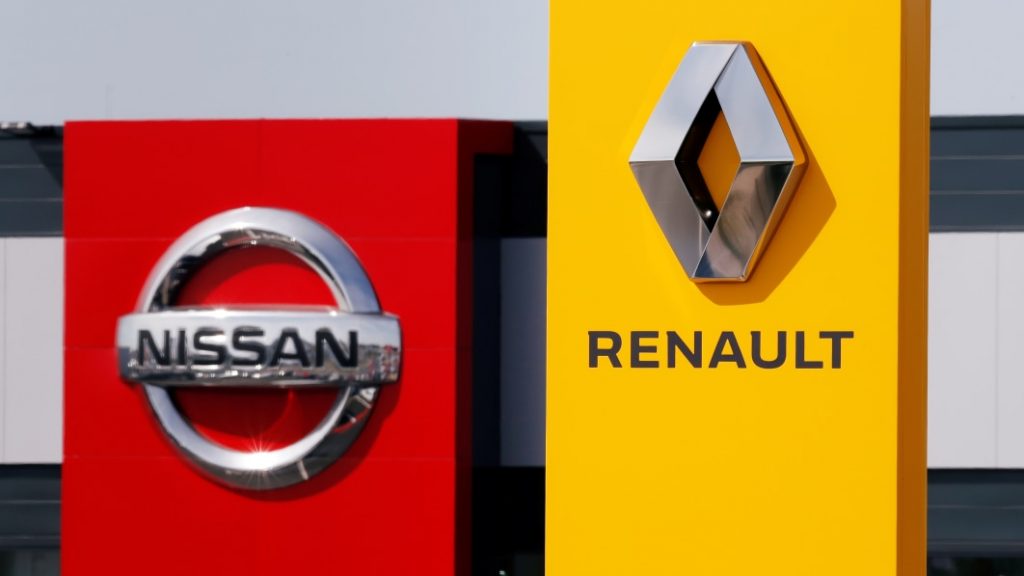Nissan says talks with Renault focused on better competing in electric cars

TOKYO — Nissan’s talks with Renault on revamping their alliance are focused on strengthening competitiveness as equal partners and getting the most from their investment in electric cars, the Japanese automaker’s CEO told Reuters.
The negotiations with Renault, Nissan’s top shareholder, have less than two weeks remaining to meet a Nov. 15 target the companies had set to reach a deal, according to people with knowledge of the talks.
Nissan Chief Executive Makoto Uchida declined to comment on whether an agreement could be reached this month. But he said he was talking with Renault CEO Luca de Meo every weekend and the talks would be “ongoing for the future.”
People familiar with the negotiations have said the sharing of technology had emerged as one sticking point.
Uchida, who has spent much of his Nissan career in positions related to the Franco-Japanese alliance, emphasised that the talks were based on mutual trust. Each company had valuable technology and discussions of technology transfers were to be expected, he added.
He said the goal was to improve the automakers’ ability to compete at a time of economic uncertainty and as the industry pushes toward what he described as its biggest transformation in a century with the shift to electric vehicles.
“The discussion we are having is about how to make our competitiveness even stronger,” Uchida said in an interview with Reuters on Friday. “That’s number one.”
His comments were his first to media since the automakers last month said they were discussing the future of their alliance. The partnership, which began with a 1999 investment from Renault and was long overseen by former executive-turned-fugitive Carlos Ghosn, was critical to turning around the Japanese automaker.
But Nissan executives have over the years bristled over the unequal ownership structure, with Renault owning 43% of Nissan and the Japanese automaker holding only a 15% non-voting stake in Renault.
People with knowledge of the talks have said the two sides have been discussing a reduction in Renault’s stake, potentially to 15%, and the terms under which that could happen.
“We want it to be an equal partnership,” Uchida said, adding that an “equal partnership would make sense and that would speed up the collaboration even more.”
He did not comment on potential stake levels.
Ampere and Horse
The companies also said last month that Nissan is considering investing in Renault’s new electric vehicle unit, code-named “Ampere” and which will be split off from its internal combustion engine business, code-named “Horse”.
Uchida declined to say whether Nissan is considering an increase to a previously announced plan to invest 2 trillion yen ($13.6 billion) in electric vehicles by 2026.
On a separate track from its discussions with Nissan, Renault has also been talking to Geely Automobile Holdings about the Chinese automaker taking a stake in its internal combustion-engine unit, people familiar with those talks have said.
That unit includes Renault production sites in Spain, Portugal, Turkey, Romania and Latin America.
Uchida said Nissan understood the transformation Renault was undertaking with the carving out of its gasoline-car business and that “fair treatment” for Nissan as part of a new partnership was an area of discussion. He did not mention Geely by name.
“If they have their new partner, A or B or C, what does that mean? We are openly discussing that,” he said.
“Transparency is very important,” he added.
Uchida also said Nissan was making contingency plans for the prospect of a global recession. “For us to be sustainable in the market, we need to anticipate many scenarios, and that’s what we’re doing,” he said.
He cited the depreciation of the yen to its lowest level in decades as another concern for Nissan.
($1 = 147.6000 yen)
(Reporting by Kevin Krolicki and David Dolan; Editing by Miyoung Kim and Edwina Gibbs)



